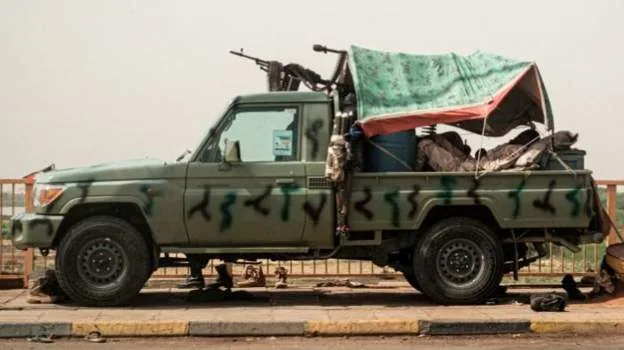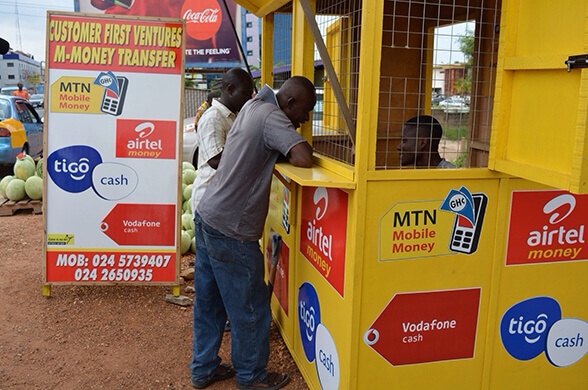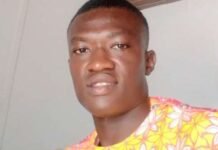
Sudan’s army has been attacking an area of Omdurman city where a traditional healer has been treating injured paramilitary fighters.
Ten people died in shelling on Monday, which marked four months since the start of the brutal power struggle between the military and the paramilitary Rapid Support Forces (RSF).
Since the war began the RSF has moved into bases in many residential areas of the three cities that make up Greater Khartoum – Bahri, Khartoum and Omdurman – that are often targeted by air strikes and shelling.
One shell, fired from the nearby Karari military base, hit a small square in Omdurman’s Ombada 19 suburb where young men were seeking shade from the heat.
A separate shell hit a restaurant owner’s home, killing his son.
Another shell was fired towards the traditional healer’s house on Tuesday, but it did not explode.
The attacks cut internet connections, which only returned later on Tuesday.
The home of the traditional healer, who was not harmed, has become a clinic of sorts during the war – a consequence of 80% of hospitals having to close because of the fighting.
She is known to deal with bone fractures and has recently been treating RSF personnel.
Traditional healing is popular in Sudan – many believe this method is better than modern medicine for treating broken bones.
Ombada 19 is also home to members of the Rizeigat ethnic group.
They originally hail from Darfur, like RSF leader Gen Mohamed Hamdan Dagalo, who is a Rizeigat as are many of his fighters.
RSF soldiers are often seen carrying rifles in and around the neighbourhood, where hundreds of people have fled because of the latest attacks.
But Ombada 19 resident Hawa Adam, who has fled with her young son to find shelter at a stranger’s house in a safer area, said: “I really don’t know why they shelled our neighbourhood. There’s not a single RSF fighter here.”
On Sunday, a separate area of Omdurman, Ombada 16, was hit by an airstrike. Three young men, two brothers and a neighbour, were killed, a neighbourhood organisation said.
Source: BBC



